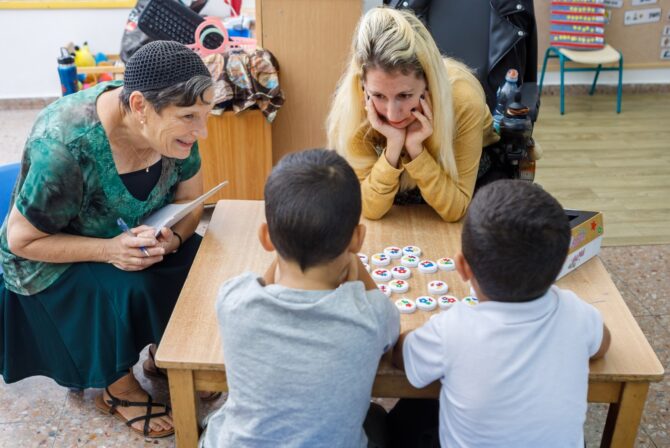A few weeks ago, I was at a 3-year-old’s birthday party, and I put my 6-month-old son down next to another baby. The other child effortlessly rolled across the blanket, while my son, a few weeks younger, mortified his mama by crying, in place, on his tummy. Oh no, I wondered, is my child not going to be a gifted athlete? Maybe he won’t be as flexible as his brother? Are these early signs of some kind of processing delay? I panicked. Will he be popular, or an outcast among fast-moving little boys? And the terror took hold.
Have you had that fear about your child? The fear that bubbles up when you notice they are not particularly good at singing, drawing or academics? You retaliate by frantically signing them up for soccer, karate, and music classes. You become certain that if you keep trying to find it, the prodigy in your child will emerge. You talk to other parents, trying to gain reassurance that all children are special at something. The other parents may even soothe your anxiety by pointing out how smart your child is because he knows 50 more words than the average kid his age. You placate your own worries by repeating that old idea that everybody has a special talent they excel at. Surely your child will find theirs at some point.
At the birthday party, my friends pointed out the benefits of a kid who doesn’t move: fewer worries about baby-proofing the house and those lurking dangers at the park. They referenced other children we knew who didn’t move until after a year (oh gosh!) but who were doing just fine on the playground now. Many also pointed out that while he may not be able to move, my son was so gorgeous and smart.
That’s when I caught myself. After all, 6-month-old children all seem to look alike and certainly intelligence can’t be measured at this point. I felt foolish. I needed to redirect my parenting approach.
I spent the next few days thinking, writing, reading, and most importantly, soul-searching. I knew there had to be a better parenting perspective available.
And then I had an epiphany: I had been fooled. We had all been fooled. Society led us to believe that we were all so special. After all, they said, everyone is smart. We believed it, and, as studies suggest, we certainly all believe it about our children. However, when thinking about my sibling’s children, the children I teach in my classroom, my childhood friends, and my children’s friends, I realize that this is not true. Perhaps, 10 percent are actually smarter, but even among that group, there is no guaranteed success. In fact, many of those who “made it” from my own childhood were not in that top tier.
And so, I had to confront the reality: My child is probably average. Your child is probably average. Statistically, most of our children are average.
Then I freaked out. I had a bank of self-esteem-boosting lines ready to be showered on my children at a moment’s notice. I would say they drew like Picasso, wrote like Emily Dickinson, and should aspire to be the president. What, now, would I tell them to make them feel special?
Ultimately, what I realized through this journey is that what makes my kid special is their personal character and moral development, what I now call, “inner successes.” I’m proud of my boys when they share. I praise them when they show empathy. I do a little dance when they show persistence. I celebrate those inner successes. Their intellectual abilities, awards, looks, or charisma never defines their personal value. Rather, it’s defined solely by their character growth.
The word “smart” has been banned in our home (to the chagrin of my husband who is still convinced we have the next Einstein!) and we politely avoid discussion of my kids’ blonde hair and blue eyes. Instead, we praise moral behavior. When we lay in bed at night and I share my dreams with my sons, I tell them that above all else, before all else, they are special when they give to others, show empathy, develop humility, and display kindness.
While academic pressures are sure to grow, college admissions loom in the distance, and financial success is often a mark of self-worth, I hope that my sons know where their real value lies. And even if one of my kids does end up being the next Einstein, I’ll be right there to remind him that he’s not so special. That is, of course, unless he has achieved true internal successes.
Like this post? Get the best of Kveller delivered straight to your inbox.







